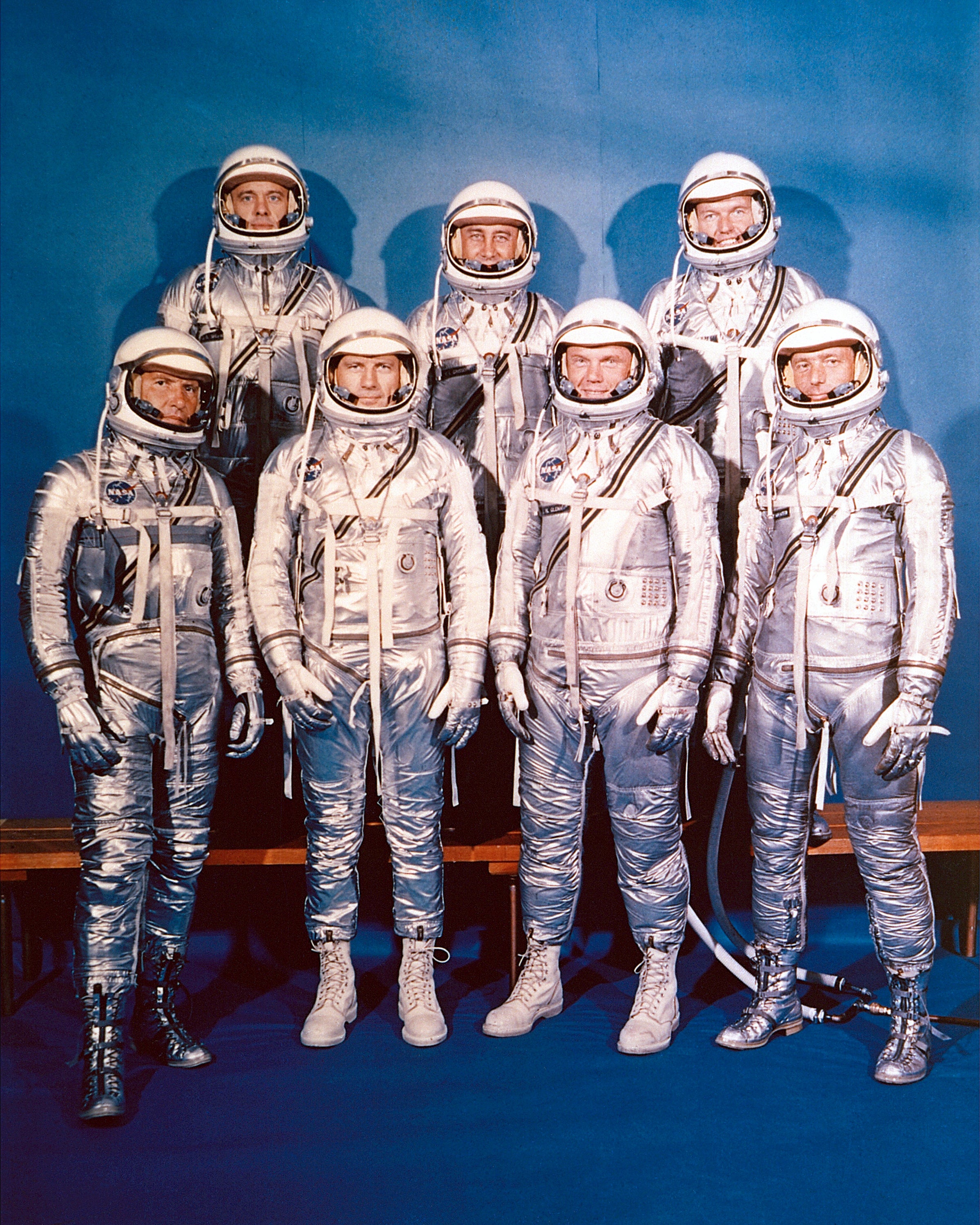John Glenn died December 8, aged 95. Glenn had been the last surviving member of the Mecury Seven, the first group of astronauts as selected by NASA.
They were part of Project Mecury, the first American sub-orbital and orbital space flights with human "pilots", begun in the late 1950s in response to early USSR successes with Sputnik and other space launches.
Although all seven Mecury astronauts were excellent pilots with remarkable military careers, NASA's scientists had originally intended them to be relatively tame test subjects, to demonstrate feasibility of human space flight. Instead, they became celebrities of the Cold War, were honoured their entire lives, and each profitted substantially in professional and personal ways that few might have anticipated in the late 1950s. Glenn became a US Senator, for example.
Tom Wolfe's 1979 book The Right Stuff tells an unvarnished version of the space program selection process and the impact it had on the Mecury astronauts, as well as test-pilots such as Chuck Yeager (most famously known as the first man to fly faster than the speed of sound in 1947, and still alive in late 2016). Wolfe offers a broad thesis about these men as masculine warriors, who must be publicly celebrated before battle. In this case, they must go forth and wrestle with the forces of nature itself. Hence, they must have "the right stuff". In 1983, the best-selling book was adapted into an excellent movie, though both offer embellishments and fictionalizations of history, preferring a good yarn now and then to documented fact.
To draw this back to an STV-like lesson, I think what I would point out is how the Mecury Seven offers a wonderful illustration of the ways by which we elevate our technological heroes over others who contribute at least as much, if not more, to change. The astronauts, whether or not they had "the right stuff", were not rocket scientists (lest we forget Wehrner von Braunn, the Nazi scientist who did help the Americans build rockets after WWII). They did not assemble the capsule, or engines, or calculate their own trajectories. Other men and women did. They were chosen by NASA, but the selection process itself was rather arbitrary, because nobody really knew was a good astronaut looked like, and deliberately excluded women. And, as the film version of The Right Stuff dramatized, they really weren't meant to pilot the Mecury capsule at all. They were to be "spam in a can", test subjects or guinea pigs, not warrior pilots. Their celebrity was manufactured by the American press.
Which is, I think, a major problem with technology and change. We have a strong tendency to elevate--literally, in this case--our heroes, and forget about the contributions of everyone else involved. I haven't seen many eulogies for the tens of thousands of people also involved in Mecury. And a misplaced sense of history like this corrupts our view of change, laying it at the feet of a handful of elite "warriors", instead of holding it our own hands.
Not that you'd catch me on top of a giant candle waiting for it to explode into the upper atmosphere. I won't deny that some women and men may hold "the right stuff" to be a test-pilot, but surely there are other kinds of "right stuff" to keep in mind in our stories.
